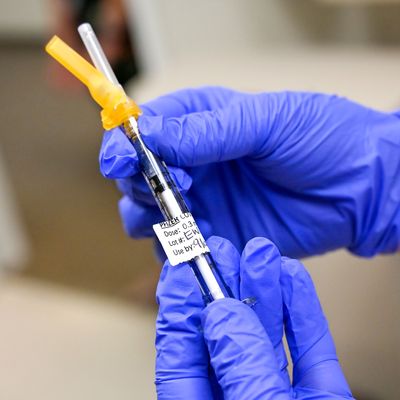
As expected, the Centers for Disease Control and Prevention backed a booster shot of the Pfizer COVID-19 vaccine for people 65 and older, long-term-care-facility residents, and adults with medical problems shortly after the agency’s Advisory Committee on Immunization Practices recommended the same. But the CDC overruled the panel on another issue, opting to recommend a third dose for adults working in institutional settings who are at elevated risk because they live in a setting or work in an occupation that exposes them to COVID-19.
CDC Director Rochelle Walensky signed off on most of the ACIP’s recommendations, but in a rare break from the agency’s advisory panel, deviated on the fourth and final one. She said people should be offered boosters if they are between the ages of 18 and 64 and are at an elevated risk for exposure to COVID-19, such as health-care workers, teachers, grocery workers, and those in homeless shelters or prisons.
“As CDC Director, it is my job to recognize where our actions can have the greatest impact,” Walensky said in a statement late Thursday. “At CDC, we are tasked with analyzing complex, often imperfect data to make concrete recommendations that optimize health. In a pandemic, even with uncertainty, we must take actions that we anticipate will do the greatest good.” She added that a booster for those in at-risk work and living environments aligns with the Food and Drug Administration’s booster authorization earlier this week.
So far, recommendations cover only people who received their second Pfizer shot at least six months earlier. The CDC advisory panel expressed concern over the millions of Americans who received Moderna or Johnson & Johnson shots early in the vaccine rollout; at the moment, agencies still haven’t considered these for booster authorization and they discourage mix-and-matching vaccine brands.





























